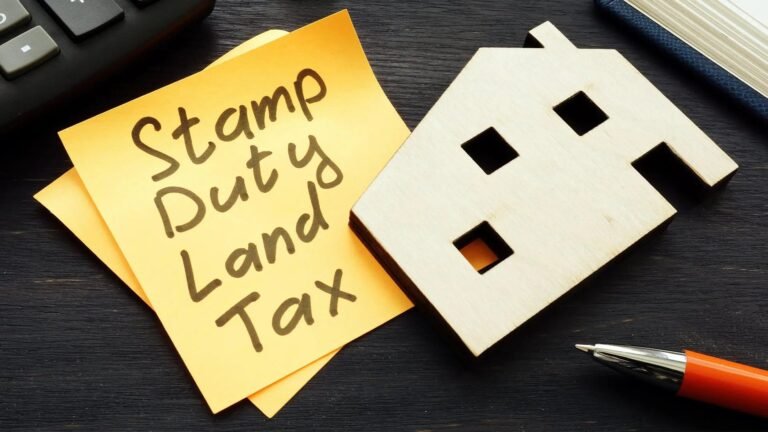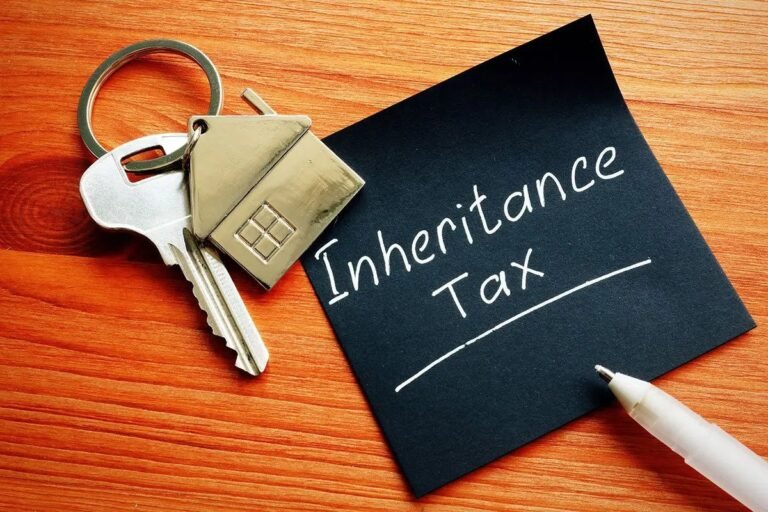Capital gains tax is a tax on the profit made when selling an asset that has increased in value. In the UK, capital gains tax is payable on the sale of second homes and buy-to-let properties.
One of the significant tax all property owners have to pay is the capital gains tax. Let’s start with what is capital gains. In simple terms, capital gains mean the selling price less acquisition costs.
For example,
If you bought a property for £100,000 in 2001 and its market value now is £250,000, then you made capital gains of £150,000. If you sell this property for £250,000, then you have to pay capital gains tax on your gain of £150,000.
The annual exemption works similar as the personal allowance. For the year 2023, there is an annual exemption for capital gains up to £6,000 which means no capital gains is payable on first £6,000. The exemption is going to reduced further to £3,000 from April 2024.
To arrive at chargeable capital gains, we deduct annual exemption of £6,000 from the capital gains. For taxable gains, the CGT rates depend upon your taxable income. For the tax year 2022/23, the capital gains tax rate is as below.
Capital Gains Tax Rates
As discussed above, to compute the Capital gains tax, the annual exemption for capital gains up to £6,000 is available. This was previously £12,300 prior to 1 April 2023 and will be £3,000 from April 2024.
For the tax year 2023/24, the capital gains tax rates are given below:
|
Income Threshold |
Residential Property |
Others |
|---|---|---|
|
Basic rate (threshold: £50,270 for 2023/24) |
18% |
10% |
|
Higher rate (income more than basic rate limit) |
28% |
20% |
You will notice that the capital gains tax rate is higher for gain on sale of residential property. This is one of the several measures the UK Government has taken to reduce participation of investors in the UK residential property market. As per HMRC, UK residential property includes the following:
- An interest in UK residential property
- Properties in the process of being constructed or adapted for use as a dwelling
- the right to acquire a UK residential property ‘off plan’
- a UK residential property that isn’t your main home
- your main home if it’s a very large or you have let it out, used for business or has long period of absence.
Chargeable Assets and Exempt Assets

The capital gain tax is always levied on the purchase and sale of a Chargeable assets.
For the purposes of capital gains taxation, most things other than sterling cash are assets. If an asset does not qualify for an exemption from CGT, it is considered a chargeable asset. It will be a non-exempt asset if it is not included on the list of exempt assets.
Some of the following assets are considered exempt assets and non-Capital Gain Tax will be application on its disposal.
- Cars. However, Vans and Lorries are not exempted from CGT as they do not satisfy the definition of the word ‘Car’.
- Wasting Chattels
- Chattels that are bought and sold for not more than £6,000
- Gifts
- Shares in an ISA
- Foreign currency held for personal expenditure outside the UK
- Foreign currency bank
This is not an exhaustive list and any assets that are not specifically exempt, it must be chargeable asset for capital gain tax.
Note: Any transfer between a husband and wife is regarded as occurring without profit or loss. This means that spouses may freely transfer assets between themselves without incurring a CGT charge. Equally applicable to civil partners.
This manual uses the term ‘spouse’ to refer to husband, wife, and civil partners.
Get to know more about transferring your property to a spouse on our complied blog for your complete information
Payees of Capital Gains Tax
Capital gains tax is payable by the following:
- UK resident individuals and trusts
- Non-UK resident persons selling UK residential property.
- Companies selling the UK property and shares in the UK (Companies usually pay corporation tax on the capital gain)
Calculation of Capital Gain Tax
Gains are calculated by deducting costs from the proceeds of sale.
Incidental costs of disposal such as legal fees and advertising are deductible, as are associated costs of acquisition such as legal fees and stamp duty land tax.
Enhancement expenditure reflected in the state of the asset at sale is deductible in
calculating a gain on the asset.
For Example,
Suppose Michael purchased a three-bedroom house at the cost of £250,000 in 2006. He paid legal fees and stamp duty of £8,000 at the time of purchase.
In 2011, he extended the house by adding one more bedroom and made some other capital improvement works with total costs of £50,000.
His total costs to date are £308,000 (£250,000 purchase price plus £8,000 initial legal fees and £50,000 capital improvements).
He sold the house in 2023 for £650,000 and paid an estate agent and legal fees of £10,000 for the sale. His net disposal proceeds will be £640,000 (£650,000 selling price less costs incurred for sale).
His capital gains and tax payable will be in the calculator for capital gains tax shown below, assuming Mr. Michael is a higher rate taxpayer:
|
particulars |
Amount |
|---|---|
|
Net disposal proceeds |
£640,000 |
|
Less: Acquisition costs & capital improvement |
£308,000 |
|
Capital gains |
£332,000 |
|
Less: Annual Exemption |
£6,000 |
|
Taxable Capital Gains |
£326,000 |
|
Capital Gain tax at 28% |
£91,280 |
Business Asset Disposal Relief (BADR)
Business asset disposal relief (BADR) applies where there is a ‘material disposal’ of ‘business assets’ by:
- Sole traders and partners
- Company Directors/employees selling shares in their ‘Personal Trading Company’
Personal Trading Company is one where the shareholders own at least 5% of the ordinary shares share capital.
The following disposal are generally available for BADR:
- Selling all or part of your business shares
- Exchange of business assets resulting in gain
- Gifting of the business asset
BADR is given by taxing qualifying gains at 10%. These gains are treated as using any unused basic rate band in priority to other income and gains.
Understanding BADR Calculation
For Example,
Wayne, the managing director of a company sells 15% of his share in the company at a gain of £720,000. He has also made he sale of a painting for a gain of £36,000.
|
|
Gains Eligible for BADR |
Other Gains |
|---|---|---|
|
Gain on sale of shares |
£720,000 |
—– |
|
Gain on sale of painting |
—– |
£36,000 |
|
Less: Annual Exemption |
—– |
£6,000 |
|
Taxable gain |
£720,000 |
£30,000 |
|
CGT: |
|
|
|
£720,000 @ 10% |
—– |
£72,000 |
|
£30,000 @ 20% |
—– |
£6,000 |
|
CGT Payable |
—– |
£78,000 |
The BADR must be claimed on or before the first anniversary of the 31 January following the tax year of disposal.
If the disposal was made on 8th September 2023, the BADR must be claimed on or before 31 January 2025.
Note: BADR is only available in respect of eligible gains up to the lifetime limit of £1 million. Any gain in excess of the lifetime limit will be taxed at normal CGT rates.
Relief for Capital Losses
Capital losses must be set off against capital gains in the same tax year. This is automatic. This means, for example, that if a taxpayer makes a gain of, say, £5,000 on one asset, and a loss of £1,000 on another asset, these must be netted off, to give net gains in the year of £4,000. The annual exempt amount is deducted after relief for current year losses.
Any excess losses for the year are carried forward and reduce capital gains in future years. However, the annual exempt amount is deducted before relief is given for capital losses brought forward. So, where gains net of current year losses is less than the annual exempt amount, any brought forward losses are preserved to offset in a future year.
Reporting of Gains and Payment of CGT
The capital gain can be reported to HMRC is the following ways:
- Using the ‘Capital gains tax on UK property’ online service within 60 days of selling the residential property.
- Straight away using the ‘real time’ capital gain tax online service, or
- Annually in a self-assessment tax return
It is important to identify the ‘Completion date’ for the disposal as this will determine the reporting deadline.
The completion date is that date by which the seller must vacate the property and hand over the keys to the buyer.
Capital Gain for Non-UK Resident
The capital gains tax (CGT) applies to the sale of a property in the United Kingdom. Only UK residents were subject to CGT on the sale of property. Therefore, the non-residents’ gain from selling the UK property was tax-free.
However, a few years ago, the tax rules changed, and the Non-Resident Capital Gains Tax (NRCGT) was introduced. This means that non-residents must now pay CGT on the sale of UK property.
Beginning on April 6, 2015, the NRCGT regime initially applied only to the sale of residential properties. The regime expanded to include non-residential properties beginning on April 6, 2019.
Non-residents includes:
- Non-resident individuals, companies and partnerships
- Non-resident personal representatives and trustees
- Non-resident collective investment schemes
From 6 April 2019, corporation tax rather than Capital gains tax will be charged on gains from UK property or land for all non-resident companies. This includes:
- Collective investment Vehicle
- Life Assurance companies
You can get a comprehensive understanding of NRCGT on UK property disposals on our full-fledged guide.
Rebasing Rule
Rebasing in computation of capital gains in the UK refers to the method of calculating the gain on the sale of an asset by using its market value on a specific date, such as April 5, 2015, or April 5, 2019.
This allows non-residents or individuals who owned the asset prior to those dates to deduct the costs of improving the asset and incidental disposal fees when determining their taxable gain.
Disposal of UK Residential Property
For disposals of UK residential properties by non-residents who owned the property prior to April 6, 2015, the standard method for calculating the gain is to use the property’s market value on April 5.
- Establish the value of your property as of April 5, 2015 (known as ‘rebasing’).
- Calculate the difference between the property’s value on April 5, 2015 and its value when it was sold.
- Deduct the costs of improving the property (improvement costs) incurred after April 5, 2015, as well as the legal fees associated with selling the property (incidental disposal fees).
Disposal Of UK Non-Residential Property
If you owned the asset prior to April 6, 2019, the standard method for calculating the gain is to employ the asset’s market value on April 5.
- Determine the value of your asset or property as of April 5, 2019.
- Calculate the difference between the value on April 5, 2019 and the value when the property or asset was disposed of.
- Deduct any property improvement costs (improvement costs) incurred after 5 April 2019 and paid after that date. Include the legal cost of selling the asset or property (incidental disposal costs).
Reporting Rules for Non-UK residents
Details of any direct or indirect disposals of UK land and property by non-UK must be reported on an online property return within 60 days of completion (30 days for completion prior to 27 October 2021).
Any CGT due on direct or indirect disposals of UK land and property by non-UK residents must be paid on account within 60 days of completion (30 days for completion prior to 27 October 2021).
Generally, the 60 day CGT return rule applies to the taxpayers who usually complete their personal tax return, which includes:
- Individual taxpayers
- Joint Owners of residential property
- Partners in general partnership and limited liability partnership (LLP)
- Trustees of trust
As discussed earlier, the non-resident company must pay Corporation tax rather than CGT and hence this 60 days rule does not apply to such companies.
Learn from the experts about how to handle a CGT return in 60 days.
Conclusion
In conclusion, understanding and properly managing capital gains tax is essential for property owners in the UK. Capital gains tax is payable on the profit made from the sale of assets that have increased in value, including second homes and buy-to-let properties.
The tax rates for capital gains depend on various factors, such as the type of asset and the individual’s taxable income. It’s important to consider exemptions and reliefs, such as the annual exemption and business asset disposal relief, to minimise the tax liability.
Non-UK residents who sell UK property are also subject to capital gains tax under the Non-Resident Capital Gains Tax (NRCGT) regime. Reporting the gains and paying the tax within the specified deadlines is crucial to avoid penalties. Seeking professional advice and staying updated with the latest regulations and changes are highly recommended to ensure compliance and optimise tax planning strategies.
We are dedicated to solve your queries.
Contact us for assistance at any stage of your journey.









